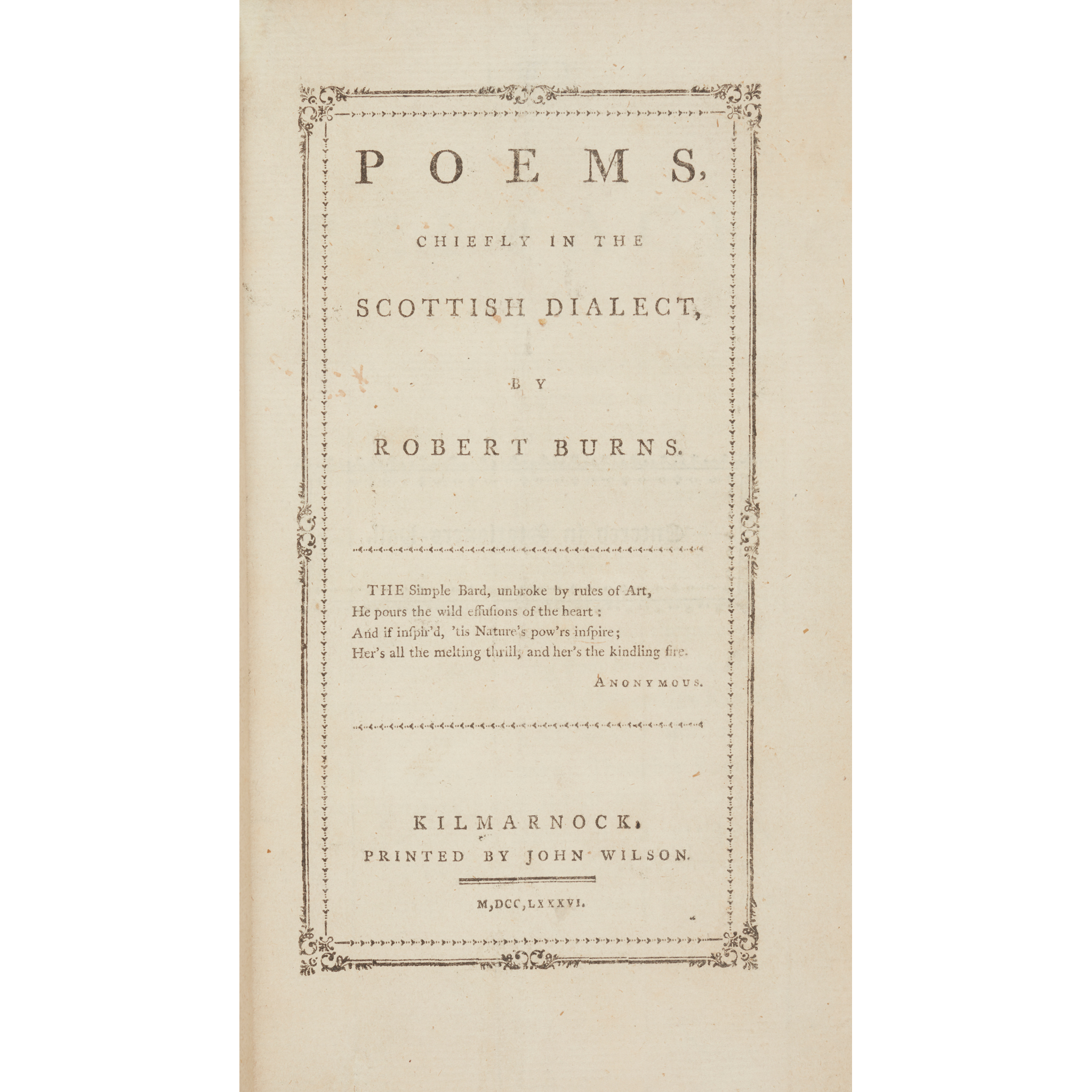Burns, Robert - The "Kilmarnock Burns"
Poems Chiefly in the Scottish Dialect
£62,700
Auction: 19 September 2024 from 10:00 BST
Description
Kilmarnock: John Wilson, 1786. First edition, 8vo, 204 x 117mm, late nineteenth century green morocco gilt by F. Bedford, spine gilt, gilt edges
Provenance
Roderick Terry, noted American bibliophile, armorial bookplate; Previously owned by John Dover of Glasgow; offered for sale by a Scottish institution
Footnote
Robert Burns was an intelligent and fun-loving youth, working as a farm labourer by day and reading the works of Scottish Enlightenment authors and philosophers, alongside playing the fiddle, in his spare time. Unusually for the era, although less so for lowland Scotland at the time, the working-class Robert Burns received a formal education in standard English. He combined this with the influences of the Scots language and folklore to create poetry which has appealed to generations worldwide, identifying the truths of human nature. Burns first started to write poetry as a boy of about fifteen, addressing them to a “bewitching” girl he had met during the harvest. Nearly 240 years after the publication of the 1786 “Kilmarnock Edition”, over 2000 editions of his poems and songs have been published.
The “Kilmarnock” – or first – edition of Burns’ poems is the single most famous volume in Scotland's impressive literary heritage. However, the work almost never saw the light of day. Burns' farming activities at Mossgiel farm were not profitable and although he wished to marry Jean Armour, who was carrying his child, the marriage was opposed by her father, so Burns made plans to emigrate. It was only the suggestion by a local lawyer, Gavin Hamilton, that he could finance his voyage to Jamaica by publishing some of his poems, that led to him approaching a nearby printer, John Wilson, in Kilmarnock.
On the 31st July 1786 Wilson published the volume of poetry by Burns under the unassuming title Poems, Chiefly in the Scottish Dialect. It sold for three shillings and the entire print-run of 612 copies sold out within a month, bar 13 copies left with the publisher. The volume contained much of his best writing, including The Twa Dogs; Address to the Deil; Halloween; The Cotter's Saturday Night; To a Mouse; Epitaph for James Smith and To a Mountain Daisy, many of which had been written at Mossgiel farm. The success of the work was immediate.
The first edition of Poems, Chiefly in the Scottish Dialect is exceptionally rare. As of the 2017 edition of Allan Young's The Kilmarnock Burns: A Census, there were 84 known copies of the book surviving, with 15 of these (including this copy) in private hands. In March 2021, the Burns Chronicle, published by Edinburgh University Press, updated the number to 88 surviving copies.
[Literature: Young, Allan. The Kilmarnock Burns: A Census, 2017]

